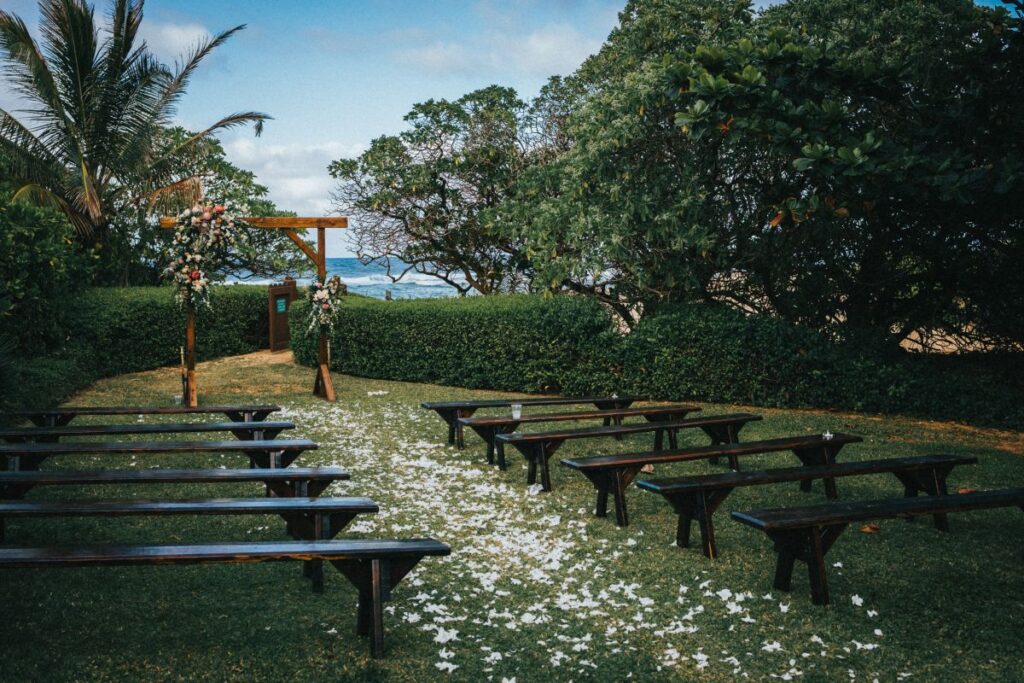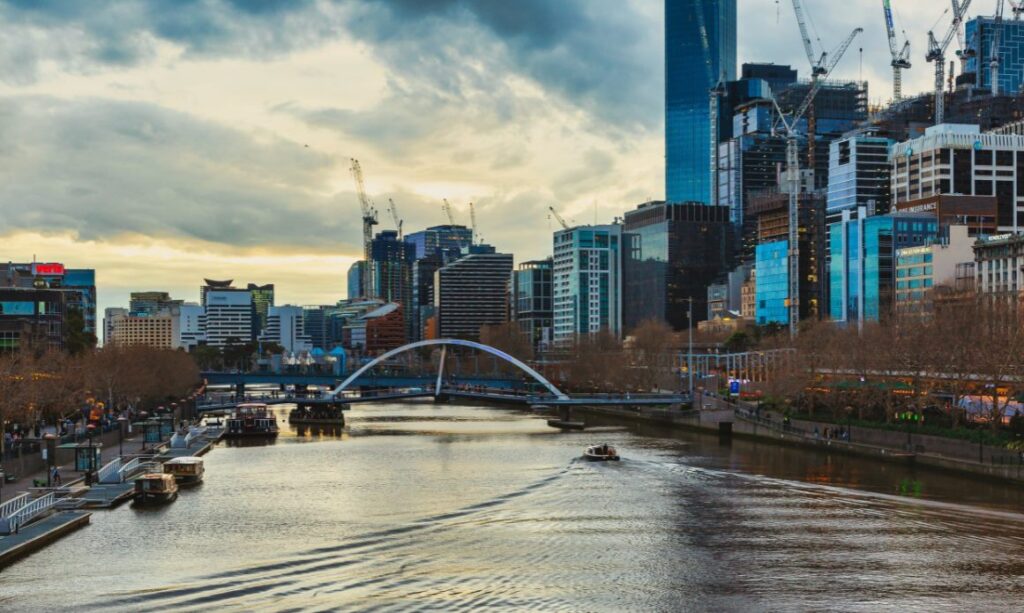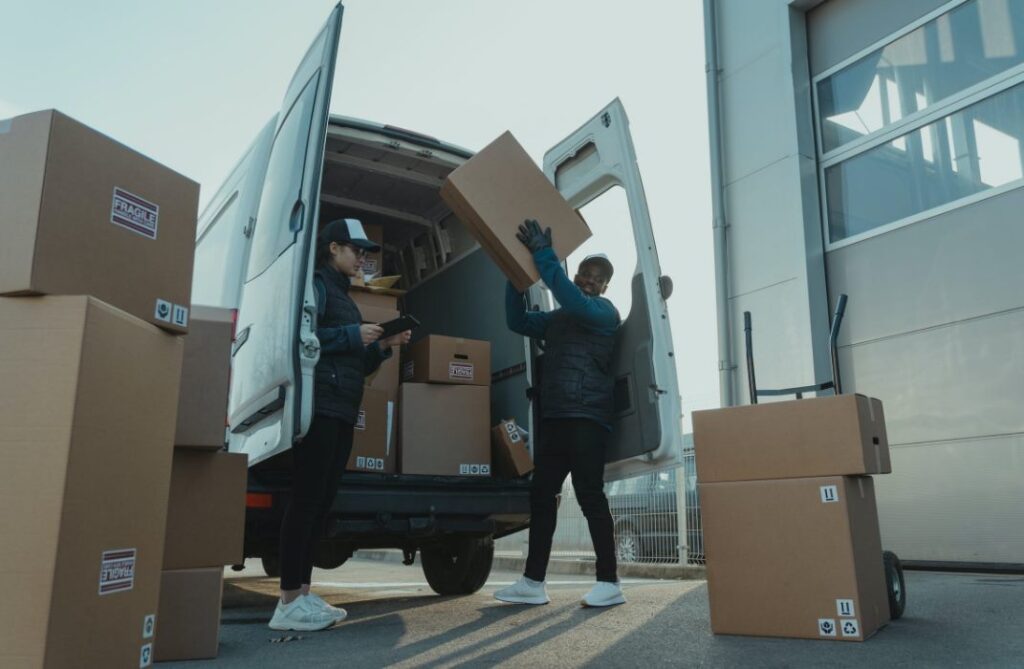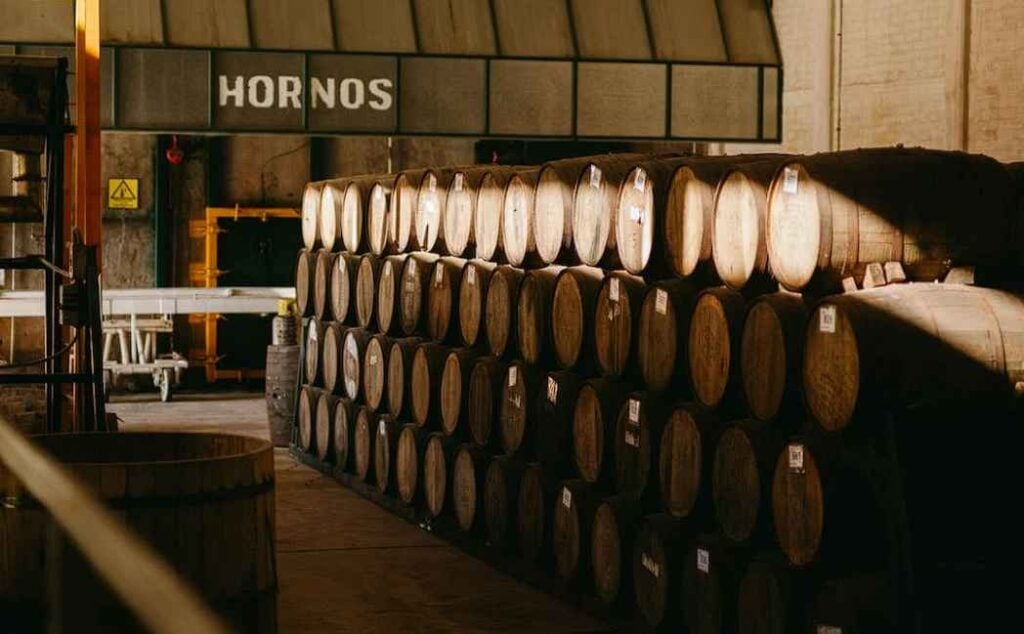When you relocate to a new city, your life will be flooded with unprecedented excitement. While the prospect of relocating to a new location is certainly appealing, there are also challenges to consider. Two such major cities are Sydney and Melbourne.
The thought of relocating between the two makes me think about weather change and financial planning. It's also important to think about things like rent, moving costs, stress, and loneliness.
Leaving the hectic pace of Sydney for the more family-friendly Melbourne is a big change. Whether you're relocating for a better job opportunity or to start a family, it's never easy to coordinate all of the moving parts. Before making this kind of change, there is usually too much to plan, think about, and research.
There's still a lot to do before you can settle down in Melbourne, even if you're only moving a thousand kilometres inland (or an hour by plane) from the coast.
Having a secure place to sleep and familiarity with the public transportation system are just two examples of how you can prepare for a safe and pleasant stay in Melbourne, a city that differs greatly from Sydney. In all likelihood, you'll need some time to settle in before you can consider Melbourne "home."
FAQs About Sydney And Melbourne
Melbourne has a highly diverse economy and population, leading to a huge variety of cuisines, attractions, and nightlife. Still, it also benefits from a warm climate and brilliant public services. Melbourne is one of Australia's oldest cities and the original Australian gold rush town.
If you've never visited Australia before and are looking for in-your-face classic tourist activities and Instagrammable heaven, then Sydney might be the best choice. But if you're looking for a destination where you have to scratch the surface a little to discover some rich culture, give Melbourne a try.
Melbourne has a well-developed job market, making it easier to find a workplace, even unskilled workers. In addition, while not cheap, the average house in Melbourne is around A$100,000 less than in Sydney.
In general, ex-pats who speak English will generally find it is easy to move to Melbourne and integrate into Melbournian culture. You can make friends easily, learn about the history and culture quickly, and partake in all the activities that make Melbourne so fun.
Melbourne is currently the second-most liveable city globally and the most liveable in Australia! There are a few reasons why Melbourne is considered such a great place to live. For example, there are multiple public transport options, relatively low crime rates, and many jobs.
Research
Knowing the differences between Sydney and Melbourne can help you decide which city is best for you.
If you could compare the cost of living in both cities, which would you choose? What we mean is, we was beginning to wonder if the weather was about the same. To begin, Sydney has pleasant weather throughout the year despite receiving more rain than Melbourne.
In both summer and winter, Melbourne's temperatures can reach extremes. Since there are so many light rains, it takes some time for the clouds to dissipate. However, Sydney experiences heavy rainfall, which quickly disappears into the air.
The city of Sydney has 104 sunny days per year while Melbourne only has 49. Sydney is perfect for you if you're always looking for new ways to enjoy nature.
Sydney's coastline is much more attractive than Melbourne's. Some of the world's most beautiful beaches can be found here. When compared to Melbourne, Sydney's and over 100 beaches stand out as a distinct advantage.
While Melbourne certainly has its share of beautiful beaches, reaching the truly exceptional ones often requires a significant amount of time and energy. The superiority of Melbourne over Sydney can be attributed to its considerably cheaper cost of living. Australia's second-largest city, Melbourne, offers a number of advantages over London, including lower rent prices. Sydney's average rent for a one bedroom apartment is $2,689 for every month, while Melbourne's average rent is only $1,725. Getting around Melbourne is a breeze thanks to the city's efficient public transportation system. A grid layout was used to plan the city, making it easy to get around. The public transportation in Melbourne runs smoother than in Sydney. In addition, Melbourne is home to a vibrant culinary community.
And they have a wide selection of cuisines, all of which are delicious. Generally speaking, food is very cheap.
According to data gathered from the public, living throughout Gws is more affordable than in Sydney. The price of meat is 6.08 points lower, and the cost of milk is 1.14 points lower, in Melbourne. White bread, pasta, as well as eggs are all more expensive in Melbourne. Coffee beverages share a class with tomatoes and potatoes. Melbourne also has a high cost of living when it comes to utilities. Costing around AUD 184.17 per month, utilities for a typical 85 square metre Sydney apartment.
A similar utility bill in Melbourne, Australia, would cost AUD 204.04 per month. Internet service is more affordable in Sydney as well. Rents are 20-26% lower in Melbourne, according to recent statistics. Apartments in Melbourne cost around AUD 3,400 per month, while in Sydney they'll run you AUD 4,215.79.
The average salary in Sydney was 7.86 percent higher than in Victoria. In contrast to Geelong, Sydney is a more secure place to live in terms of personal safety. Sydney ranks sixth on the most recent Safe Cities Index, which ranks cities around the world based on perceived safety.
As a result, Melbourne is now in tenth place, two spots lower than in 2017. Sydney is marginally less dangerous than Melbourne, however the two towns are virtually interchangeable.
Things to Consider Before Relocating to Melbourne
There are benefits and drawbacks to each kind of relocation, including those to remote islands where every necessity must be brought in by boat or plane. In this piece, we'll take a look at the pros and cons of making Melbourne your new home.
Pros
A Superb Educational System.
Publicly funded schools in Melbourne are among the best in the world, and they warmly welcome international students. Regardless of your immigrant status, your children will be able to enrol inside a public school.
Healthcare Of The Highest Calibre.
In Melbourne, you may find some of Australia's best hospitals. In any case, as an expat, you may rest easy knowing that the city under question offers both general medical care and access to specialists, should the need arise.
A Warm Welcome.
Australians as a whole are kind and welcoming, and Melburnians are no exception. Melbourne is often recognised as Australia's most cosmopolitan city due to its residents' openness to and appreciation of cultural differences from their own.
Cons
Shipping Your Items May Take More Time Than You Expect.
Due to its location at Australia's southernmost point, Melbourne is mostly disconnected from the remainder of the world's main cities and countries. Schedule your shipments ahead of time to avoid having to wait.
Strict Pet Relocation Regulations.
All new pets in Melbourne must spend a minimum of ten days in isolation. Aside from the time it takes t process an import petition and the long list of vaccines required to import a car, this is another significant obstacle. More details on getting your pets into Australia can be found in our comprehensive guide, Moving your Pets to Australia.
The Cost Of Living.
You ought to be able to pay for city living because wages are higher there. However, unless you are employed in a lucrative profession, saving money can be challenging. A night out on the town may have to be sacrificed more frequently than you would like.
Foreigners whose native language is English should have no trouble settling into Melbourne society.
You'll quickly feel at home socially, learn the culture, and participate in all the exciting things that make Melbourne special.
It should be easier to find work and just a place to call home if you can speak English, because it is the part of communication business and trade. Moving to Melbourne is also not too challenging if you speak English, Mandarin, or Cantonese. Because of the area's sizable Chinese population, it is common to see street signs with both English and simplified Chinese characters.
Plan Your Moving Budget
You've researched both options thoroughly and have a solid sense of which one would be best for you. Change your focus from the climate to the best locations for permanent residence. It's important to locate a community that fits your preferences.
It's best to find a place that's convenient for your new job, education, and social scene. Start apartment hunting now that you have an idea of where you wish to call home permanently. Investigate not only the cost of living but also the crime statistics in various regions. Weigh your monthly income against the required rent. As soon as you've settled on a destination, get in touch with a moving company. The cost of moving must be factored into your budget.
Moving can be done independently or with the help of a professional moving company.
In Melbourne, Should You Buy Or Rent?
In contrast to Sydney, rent to Melbourne is rather inexpensive. A decent apartment may be found for roughly A$500 per week, which may seem like a steal to some.
You should get a lease signed and a place rented before making the trip to Melbourne for the big move. Searching, renting/buying, and cleaning should all be completed prior to your permanent move to Melbourne.
Renting
It is possible to spend around A$800 per week on a 3 apartment in Melbourne's central business district.
Prices for apartments in Sydney's suburbs are generally 30–40% lower than in the city itself, though this can vary greatly from one area to another.
Buying
With a change of address from Sydney to Melbourne, you'll be that much closer to purchasing the house you've always dreamed of. The prices are more reasonable than in Sydney, but they're still not cheap.
Prices in the central business district average A$8,500 per square metre. The price drops to around A$7,000 per m2 after you leave the central business district. The average mortgage interest rate in Melbourne is 4.50%, which is higher than the average in Sydney at 4.00%.
The Best Places In Melbourne To Rent Or Buy A House
In general, individuals will inform you think Melbourne is an excellent location for starting or growing a family. Australia is an excellent place to raise a family or add members. It's no surprise that Melbourne, like any other major city, is home to its fair share of rich neighbourhoods. Most affluent neighbourhoods are not waterfront, which is a huge difference.
St. Kilda West is undeniably Melbourne's most desirable neighbourhood.
You can get around the city with ease thanks to the reliable public transit system, and the closest beach is only a short drive away. The convenience of being able to walk to places like parks and schools is an added selling point of this little neighbourhood.
A disadvantage is that the typical home price is much over A$2,000,000. On the contrary hand, you can expect to spend around A$500,000 on a decent flat. However, you may always increase your rent without scaring away potential tenants.
Albert Park, Ports Melbourne, St. Kilda, and Sealhome are some of Melbourne's other wonderful neighbourhoods. Real estate bargains can be obtained in any part of the city, so you should cast a wide nett. Think about your own style of living. If you work in a city, it is most beneficial to choose housing at the centre of the action rather than far outside the city limits.
How Should You Handle Utilities?
Energy in Melbourne is fully unregulated, unlike in Sydney. As a customer, you benefit because you have more options to pick from at lower pricing, but as a consumer, it might be difficult to determine which option is the best.
The good news is that the government of Victoria has provided a website that allows you to compare and contrast the services of various energy and gas suppliers. For additional information, visit the Victorian Power Check page on the website.
The lower rent in Melbourne is likely to be outweighed by the greater costs of living elsewhere. The average monthly cost of utilities like power, heating, water, & trash is around A$200 (give or take a few dollars, based on the time of year and how frequently you do laundry). Also consider the bond deposit amount and the terms under which you must vacate the premises.
Melbourne's Educational System
There are many top-notch educational facilities in Melbourne. The city is home to a broad variety of educational institutions, including both public and private schools, as well as Catholic schools and schools catering specifically to girls and boys.
The city is home to numerous educational institutions, including two of the top 10 universities in the United States. In addition to being ranked as the most liveable city in the world, Melbourne is also known as a fantastic place to raise a family because of its abundance of excellent educational opportunities.
Melbourne Job Opportunities
Despite Melbourne's cheaper cost of living, average salary is lower here. The A$4,277 monthly compensation is $A700 lower than the median income in Sydney.
Eating out is typically more expensive at Melbourne than in Sydney, while the general cost of groceries and other consumer products is lower by up to 8%.
If you don't have a job lined up in Melbourne, we wouldn't advise making the move. There are times when it seems impossible to land a job that will allow you to develop professionally.
Melbourne's Weather (Compared To Sydney)
Even though they're only 1,000 kilometres away, the climates in such two major cities could not be more different.
The warmest days in Melbourne and Sydney are remarkably similar. When compared to Sydney, Melbourne is noticeably cooler in the summer due to its much lower humidity.
It's a lifesaver for Melbourne warm nights. However, Melbourne typically gets more sunny days than The city has a more agreeable climate than Sydney's, with an annual average temperature of 35 degrees.
Sydney has a warmer winter and receives more rain than Melbourne. Because of this, Melbourne now has four distinct seasons, including mild summers.
Melbourne Public Transportation
Every new resident of Melbourne is warned about the dreadful public transport system.
Leaving from Sydney, the duration of your trip will vary greatly depending on your final destination. The commuting time for Melburnians and Sydneysiders was 15 kilometres, however Melbourne has a better public transit system. Melbourne's urban landscape is likewise quite distinctive. Narrower than Sydney's, the city's streets give it a somewhat European feel.
Using public transit still requires some time, even if it is an improvement. At first, you can feel overwhelmed by the wealth of data regarding tram zones, Myki cards, a free tramway zone, and more. However, Melbourne's public transit makes navigating the CBD a breeze. Sydney's geographical positioning.
Myki Cards
Making use of public transportation to get to and from work requires a Myki card. It's the only way to ride the city's buses, trams, and trains and get around Melbourne.
Public Transport Victoria's website has in-depth guides on how to use the various Myki card options, where to get one based on your travel plans, and more. In order to find out more, visit their website.
Melbourne Tram Zones
It's impossible to navigate Melbourne's tram zones without first visiting the city. Zone 1 & Zone 2 are the two main tram areas in the city. Not only is there an overlap zone, but there is also a free tram zone.
Pricing for tram zones in Melbourne:
- Your fare will depend just on zones you travel through. Only an individual room fare can be loaded onto your Myki card if you are going across Zones 1 and 2.
- When two zones overlap, just one fare will be deducted from your Myki balance.
- There are no trams on Street West, La Trobe Street, or Flinders Street.
Legal Concerns To Address When Relocating To Melbourne
As you prepare to make the move from Sydney to Melbourne, there are a number of organisations, both private and public that will need to be made aware of your departure. After all, if you want to keep receiving mail after moving, you need to inform the parties involved of your new contact details, cancel whatever subscriptions you may well have, and keep updating your mailing address.
Change Of Address
Anyone living in Victoria can update their address details in the digital age. To be safe, though, you should make sure your address is constantly up to date. Verify the legitimacy of the situation by contacting the local authorities.
Registration Of Pets
To put it simply, pets are part of the family to nearly everyone. Planning to relocate to Victoria's capital city of Melbourne with your pet? You have to submit an application to the local government. The government mandates microchipping and registering pets for the purpose of tracking and preventing lost pets.
Elections And Voting In Melbourne
Municipal elections are the only ones that require proof of residency to vote. The failure to participate in a government election, however, carries legal consequences in Melbourne.
Obtaining A New Driver's License
Even if you are still within your rights to drive using your Sydney licence, you should get a new one that reflects your new Victoria address. A licence that has expired in Victoria can still be used for up to three months before it's considered invalid under the law.
Organisational Notification
Quite a few organisations and businesses will need to be notified of your impending move, something you might not have anticipated. When people relocate, many things change. However, it is customary for you to notify the company independently first. informing relevant government departments and services including the Australian Taxation Office, government Education Sector, the Local Government Office, as well as the Australian Postal Service. NGO's include the likes of your doctor, banker, accountant, energy, water, sewer, phone, etc. To put it another way, the length of this list is readily apparent.
The Australian government has provided a printable, pretty thorough checklist that can be used to verify that all necessary parties have been notified. It can be downloaded right here.
Conclusion
When relocating to a new city, there are many challenges to consider, such as weather change, financial planning, rent, moving costs, stress, and loneliness. Two major cities are Sydney and Melbourne, and it is important to plan, think about, and research before moving. Having a secure place to sleep and familiarity with the public transportation system are two examples of how to prepare for a safe and pleasant stay in Melbourne, a city that differs greatly from Sydney. It will take some time to settle in before you can consider Melbourne "home."
The most important details in this text are the differences between Sydney and Melbourne. Sydney has pleasant weather throughout the year, while Melbourne experiences heavy rainfall. Sydney has 104 sunny days per year while Melbourne only has 49. Sydney's coastline is more attractive than Melbourne's, and Sydney's and over 100 beaches stand out as a distinct advantage. Melbourne has a cheaper cost of living than Sydney, with an average rent of $2,689 for a one bedroom apartment and $1,725 for a two bedroom apartment. Melbourne also has a high cost of living when it comes to utilities, with utilities for a typical 85 square metre Sydney apartment costing around AUD 184.17 per month.
Content Summary:
- When you relocate to a new city, your life will be flooded with unprecedented excitement.
- While the prospect of relocating to a new location is certainly appealing, there are also challenges to consider.
- Two such major cities are Sydney and Melbourne.
- The thought of relocating between the two makes me think about weather change and financial planning.
- It's also important to think about things like rent, moving costs, stress, and loneliness.
- Leaving the hectic pace of Sydney for the more family-friendly Melbourne is a big change.
- Whether you're relocating for a better job opportunity or to start a family, it's never easy to coordinate all of the moving parts.
- Before making this kind of change, there is usually too much to plan, think about, and research.
- There's still a lot to do before you can settle down in Melbourne, even if you're only moving a thousand kilometres inland (or an hour by plane) from the coast.
- Having a secure place to sleep and familiarity with the public transportation system are just two examples of how you can prepare for a safe and pleasant stay in Melbourne, a city that differs greatly from Sydney.
- In all likelihood, you'll need some time to settle in before you can consider Melbourne "home."
- Knowing the differences between Sydney and Melbourne can help you decide which city is best for you.
- If you could compare the cost of living in both cities, which would you choose?
- What we mean is, we was beginning to wonder if the weather was about the same.
- To begin, Sydney has pleasant weather throughout the year despite receiving more rain than Melbourne.
- In both summer and winter, Melbourne's temperatures can reach extremes.
- Since there are so many light rains, it takes some time for the clouds to dissipate.
- However, Sydney experiences heavy rainfall, which quickly disappears into the air.
- The city of Sydney has 104 sunny days per year while Melbourne only has 49.
- Sydney is perfect for you if you're always looking for new ways to enjoy nature.
- Sydney's coastline is much more attractive than Melbourne's.
- Some of the world's most beautiful beaches can be found here.
- When compared to Melbourne, Sydney's and over 100 beaches stand out as a distinct advantage.
- While Melbourne certainly has its share of beautiful beaches, reaching the truly exceptional ones often requires a significant amount of time and energy.
- The superiority of Melbourne over Sydney can be attributed to its considerably cheaper cost of living.
- Australia's second-largest city, Melbourne, offers a number of advantages over London, including lower rent prices.
- Sydney's average rent for a one bedroom apartment is $2,689 for every month, while Melbourne's average rent is only $1,725.
- Getting around Melbourne is a breeze thanks to the city's efficient public transportation system.
- A grid layout was used to plan the city, making it easy to get around.
- The public transportation in Melbourne runs smoother than in Sydney.
- In addition, Melbourne is home to a vibrant culinary community.
- And they have a wide selection of cuisines, all of which are delicious.
- Generally speaking, food is very cheap.
- According to data gathered from the public, living throughout Gws is more affordable than in Sydney.
- The price of meat is 6.08 points lower, and the cost of milk is 1.14 points lower, in Melbourne.


















